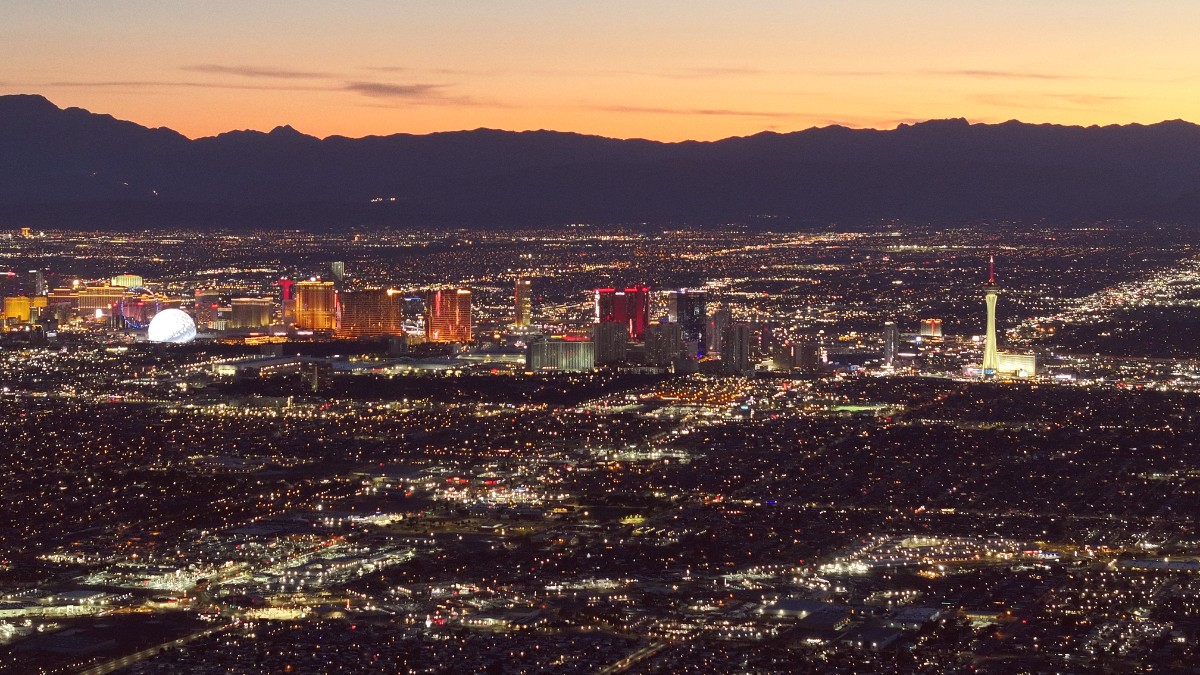
Nevada, USA
Major US mobile network providers are AT&T, T-Mobile, and Verizon. All offer good coverage in Las Vegas. Prepaid SIM cards are available from carriers directly or at retailers. ESIM activation for newer smartphones presents a digital, convenient way to connect.
Most hotels on the Strip include Wi-Fi in the resort fee. Free public Wi-Fi is generally available at Harry Reid International Airport (LAS), the Convention Center, and many cafes. Mobile hotspots are also an option.
The United States Postal Service (USPS) operates post offices throughout Las Vegas, typically off the main Strip. Many resorts have business centers that ship letters, packages, and souvenirs, though often at a premium.
English is the official language. Spanish is widely spoken due to a large Hispanic population. Many resort staff are multilingual. Smartphone translation apps (e.g., Google Translate, Microsoft Translator) are very useful.
Download offline maps and translation packs on your phone before you travel, for times without internet access.
Gaming floors in Las Vegas casinos operate 24 hours a day, 7 days a week.
Operating hours vary. Some diners are 24/7. Most serve breakfast (7 AM-11 AM), lunch (11:30 AM-2:30 PM), dinner (5 PM-10 PM). Fine dining is often dinner-only.
Strip mall retail typically opens around 10 AM, closes 11 PM-midnight, extending on weekends. Bars/lounges open afternoon, close 2 AM-4 AM. Nightclubs generally open 10 PM, close 4 AM.
Traditional bank branches generally locate off the Strip. They typically operate Monday to Friday from 9 AM to 5 PM, and Saturday mornings from 9 AM to 1 PM. ATMs are widely available in all hotels, casinos, convenience stores, and banks.
Major U.S. Public holidays (New Year's Day, Martin Luther King Jr. Day) close banks and government offices. Tourist attractions, restaurants, and casinos generally remain open or extend hours. Expect higher crowds and prices during holiday weekends. Seasonal closures are rare on the Strip.
Utilize your hotel's concierge or quick online search to confirm specific operating hours for attractions or restaurants.
Respectful interactions and awareness of cultural norms preserve the destination's integrity and community.
A handshake is common for formal introductions. For casual encounters, a simple "hello" or "hi" suffices. Direct eye contact is generally a sign of attentiveness.
Attire expectations vary (refer to Section 3.1). Casual wear for day. Dressier attire for evenings at upscale restaurants, shows, or nightclubs may be required. Swimwear for pool areas only.
Tipping is customary and expected for most service industries in the United States, including Las Vegas (see Section 2.3 for detailed guidelines). For restaurant service, 15-20% is standard for good service.
Photography for personal use is generally allowed in public areas. Casino gaming floors typically prohibit photography and videography for privacy and security. Always ask permission for shops, restaurants, or private shows. Do not photograph street performers without permission; a small tip often follows a photo.
When uncertain about tipping, a 15-20% tip for good service generally a safe choice in most service situations.
Las Vegas seeks to be an accessible destination for travelers with disabilities. Most modern infrastructure, resorts, and transportation cater to a range of mobility and sensory needs.
All major Las Vegas Strip resorts are ADA compliant, with accessible rooms (roll-in showers, grab bars, wider doorways) and accessible restrooms. The Strip features wide sidewalks and pedestrian bridges with escalators/elevators for safe crossings.
Most major attractions (shows, museums, observation decks) are wheelchair accessible. RTC buses are fully wheelchair accessible. Las Vegas Monorail stations are ADA compliant. Accessible taxis and ride-share options (Uber WAV, Lyft Access) are available.
Some shows and venues offer audio description, assistive listening devices (ALDs), or sign language interpreters upon request. Inquire directly with the venue. Service animals are generally permitted in public places under U.S. Federal law (ADA).
Local companies rent mobility equipment (wheelchairs, scooters, power chairs), often with delivery/pick-up to hotels. Online resources and specialized travel blogs supply detailed information and reviews on accessible venues and activities.
Call your hotel directly to confirm specific accessible room features that align with your needs before booking.